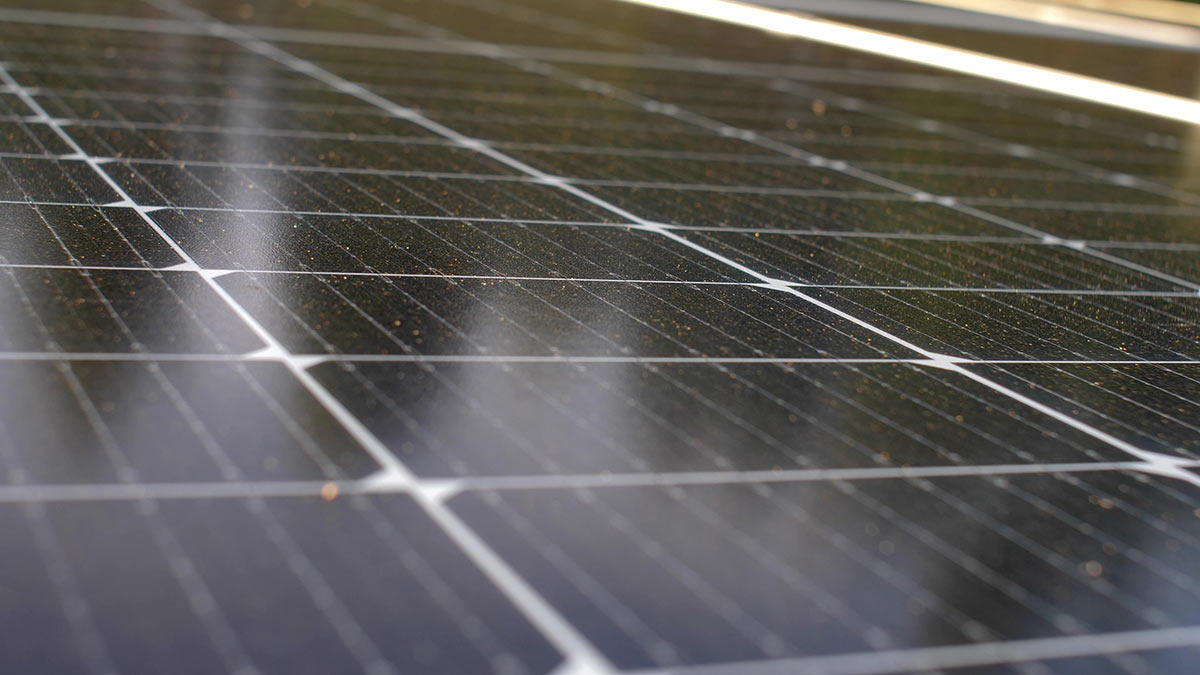

As energy costs continue to increase, and homeowners look to reduce their personal contributions to global warming, the solar revolution has transcended South Florida. The region averages 237 sunny days each year, so the opportunity to offset the electricity your home pulls from the grid can be quite appealing. With an array of federal and state tax incentives, Floridians can realize a return on their solar investment in just a few short years. That said, there are some common concerns with adding solar panels to a residential property, from damaging the home’s roof to the visual distraction of solar arrays covering a roof. One great option for homeowners looking to leverage solar energy for their home or electric vehicle is to build a solar pergola.
Adding solar panels to a home’s roof can present some concerns for homeowners. Primarily, homeowners are concerned with how their home will look with the roof covered in solar panels. The panels can be a distraction from the home’s appeal, especially with some of the historic architecture throughout South Florida. Another valid concern is the potential for solar panels to damage a roof. Drilling fixtures for solar panels can potentially compromise the structural integrity of a roof, and the ever-present potential for leaks is also possible. To mitigate these concerns, homeowners looking to offset their energy bill with a home solar array can look to a solar pergola as an alternative. A modern aluminum pergola outfitted with solar panels offers some unique benefits, including:
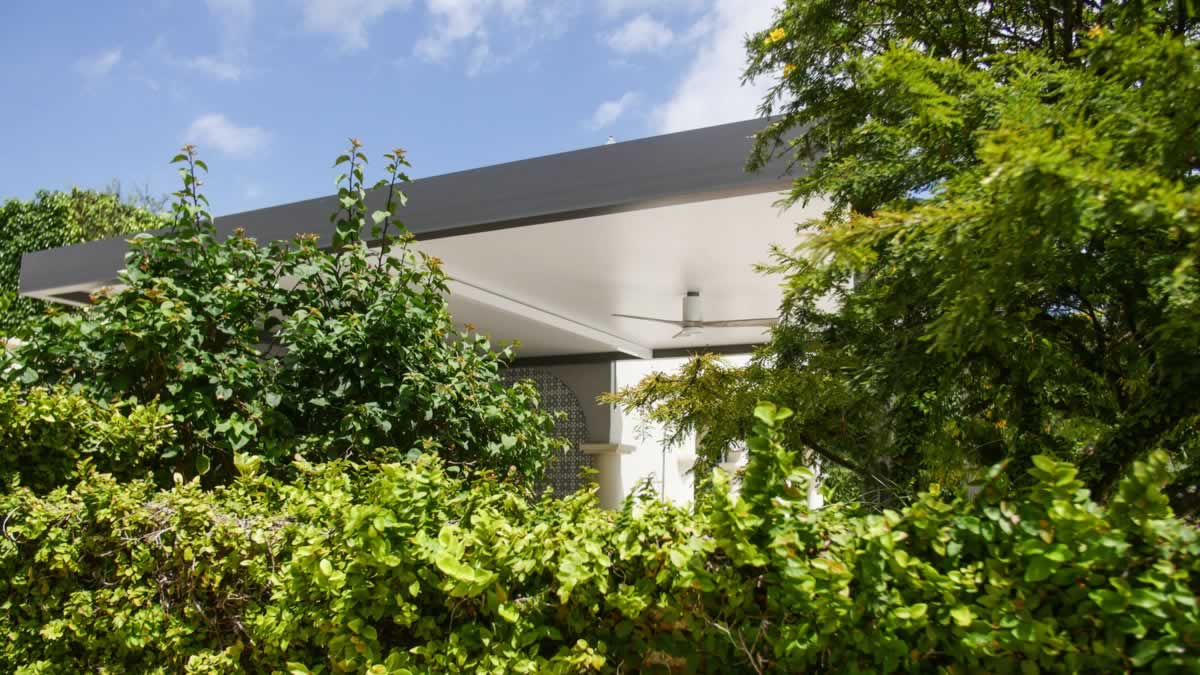
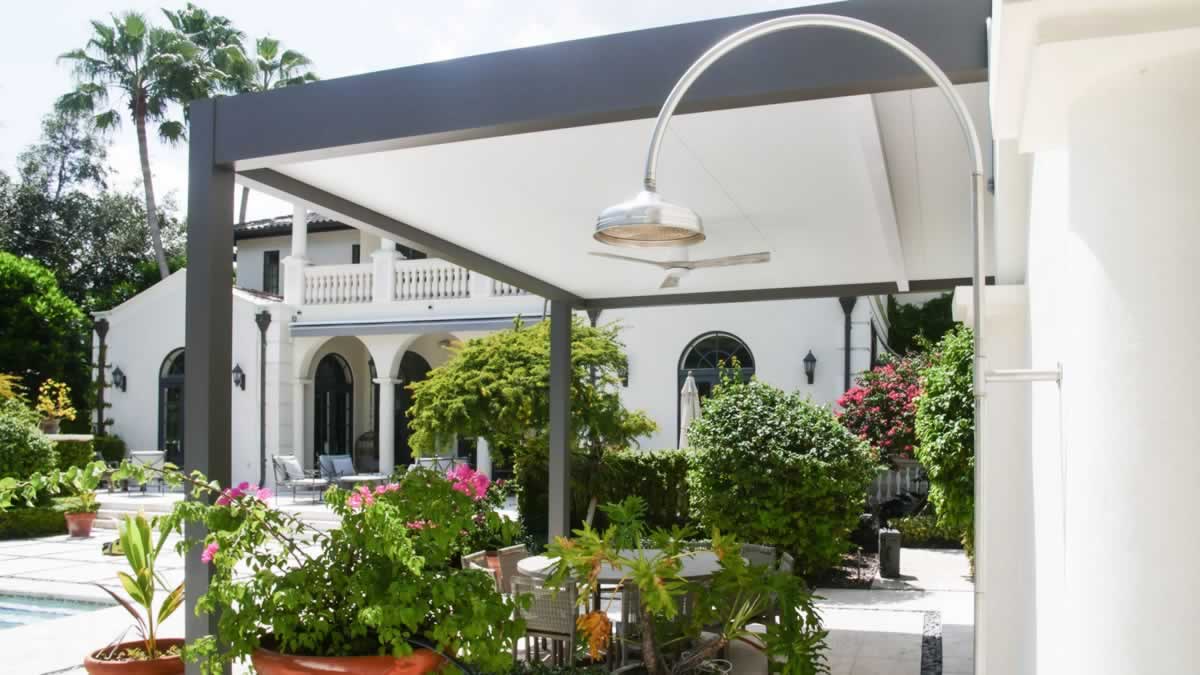
Here at SYZYGY Global, every pergola we design for our customers is completely custom. Whether a pergola attached to the home or a standalone pergola in the backyard, our designs evolve to meet the unique demands of each property. Our pergolas are fabricated from durable aluminum and powder-coated to withstand the heat and tropical weather in South Florida. This exterior powder coating can also be fully customized to seamlessly fit with your home’s exterior.
When designing a pergola with solar panels, we leverage the insulated sandwich panel design of the R-Shade fixed roof pergola from our manufacturing partners at Azenco. Not only does the sturdy roof design offer an ideal platform for affixing solar arrays, but the outdoor structure has no visible assembly hardware ensuring clean exterior lines to compliment your home. The R-Blade also features a hidden internal gutter system that captures the rainwater falling on the roof and channels it through a downspout in the pergola support column. This system allows the rainwater to be easily deposited in a nearby garden or planter bed to keep the shaded space below dry.
More and more, electric vehicles are becoming popular acquisitions for Floridians. With all the sun the state receives, accessibility of home charging systems, and a shared desire to limit vehicle emissions, residents are adopting electric vehicles as their daily drivers and even as their special occasion electric supercars. Take a ride down the A1A from West Palm Beach to Miami, and you will see a virtual car show of luxury EVs from Tesla, Polestar, Rivian, Mercedes, and more. Peek into the driveways of some of the luxury homes along the route and you’re likely to spy electric supercars like the Lotus Evija GT, Maserati GranTurismo Folgore, the BMW i8, or hybrids like the McLaren Artura.
The cost of charging these electric cars at home can easily be offset with a solar pergola. A solar-equipped carport is the ideal solution for these vehicle owners. Similar to the R-Shade pergola, the Azenco R-Car is designed to protect vehicles from damaging sun and provide rain protection for your vehicles. The height of the R-Car roofline can be customized to accommodate varying vehicle heights as well, so it can be customized to protect a boat or RV as well as a standard-sized automobile.
When designing a solar R-Car carport for your electric vehicle, you will be able to choose the exterior colors to seamlessly fit with your home’s existing architecture. The footprint of the pergola can also be scaled to accommodate the solar array that your electric fleet requires. For a sense of the scale your vehicle fleet will need to stay fully charged, a standard two-car solar carport will provide sufficient roof space for the necessary panels to charge a Tesla for the average American’s daily drive.
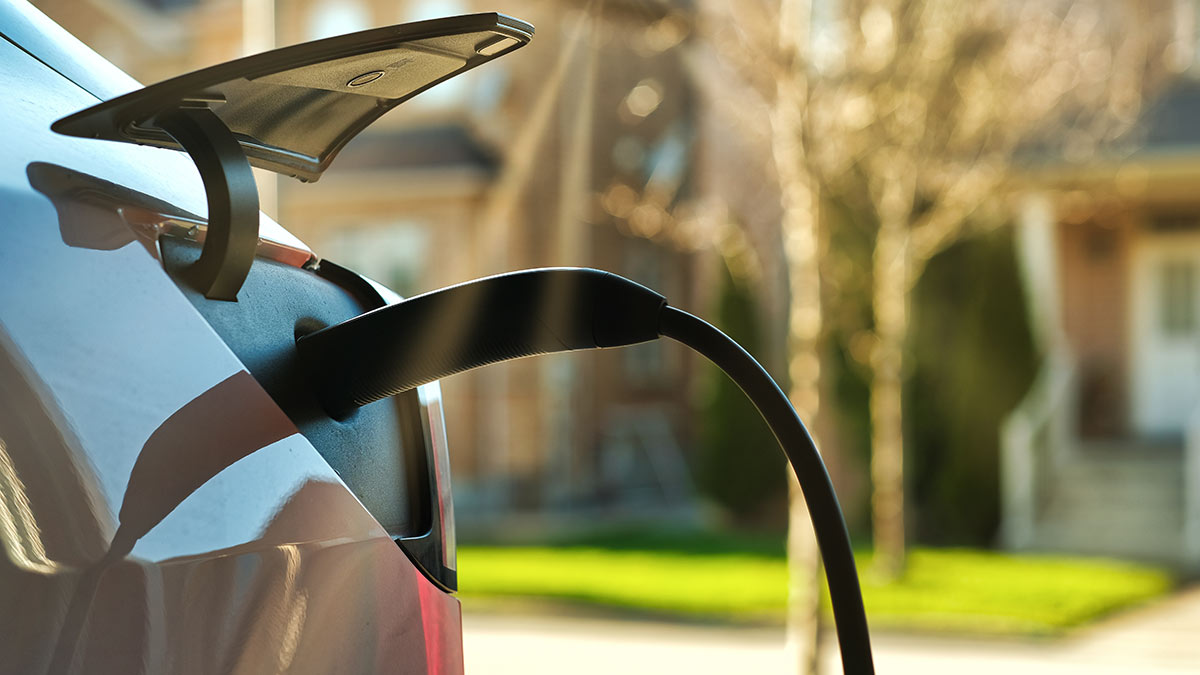
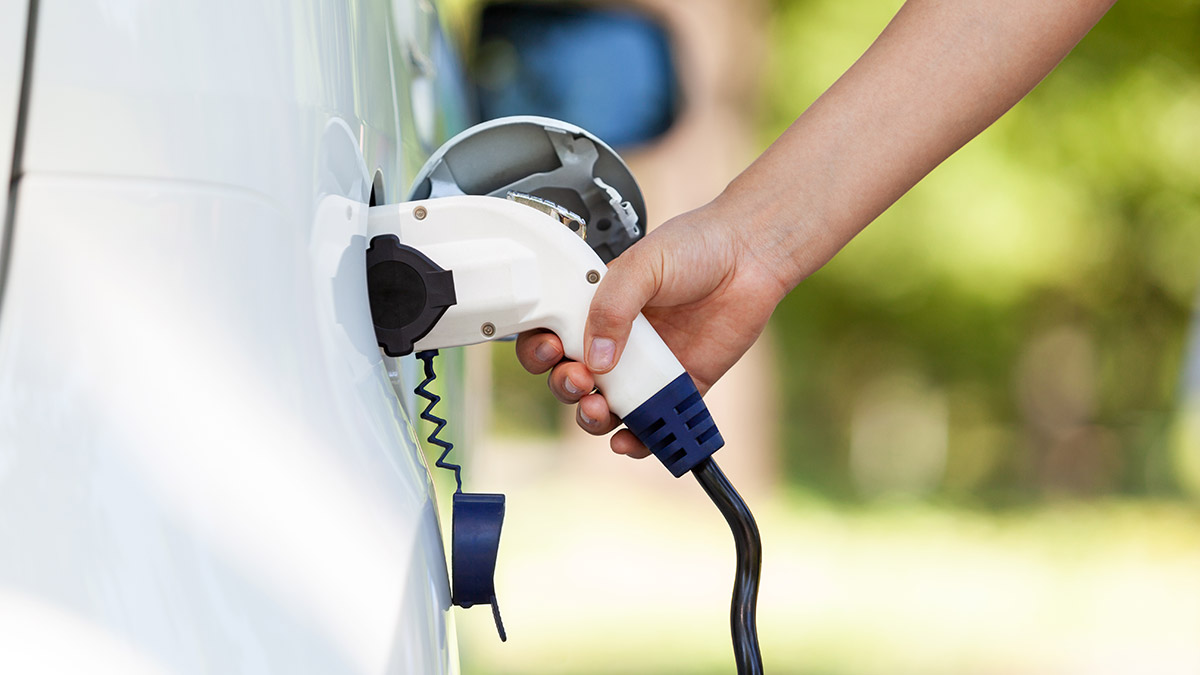
Adding a solar array to your home obviously requires some investment, but it is an investment that realizes pretty quick returns. Not only will you be drawing less (or no) energy from the grid, but when your array generates more energy than your home requires, you can essentially sell it back to the power company through a net metering program. Even better, in Florida there is no capacity limit on how much energy you can sell back to the utility, meaning it could even be a revenue generator.
According to Forbes.com, a whole-home solar system in Florida averages $12,000 to $25,000. These costs can be reduced through federal and state incentives. Nationally, the Federal Solar Investment Tax Credit offers a 30% rebate on solar equipment, including labor and materials. It requires system purchase, so research solar partners carefully. Florida also provides the Solar and CHP Sales Tax Exemption, waiving the 6% state sales tax on solar panels. Explore local incentives too, such as Boynton Beach’s Energy Edge program, which offers $1,500 rebates for energy-efficient improvements like solar panels.

If you would like to design a custom solar pergola for your home, please contact us and our design team can help lead you through the process of reducing your carbon footprint and saving money on your energy bill.

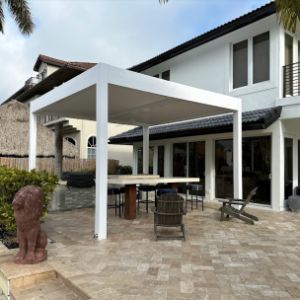
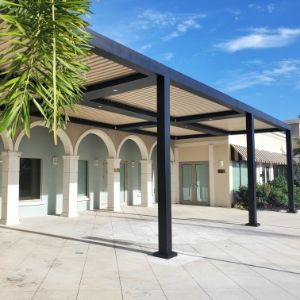
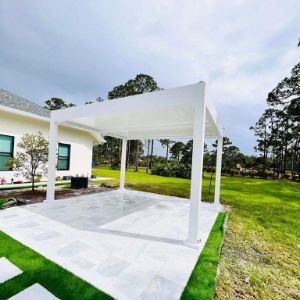
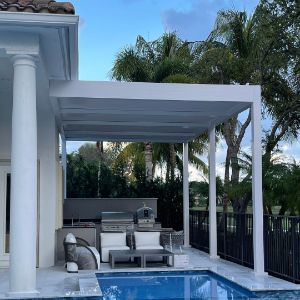
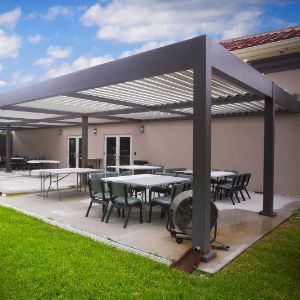
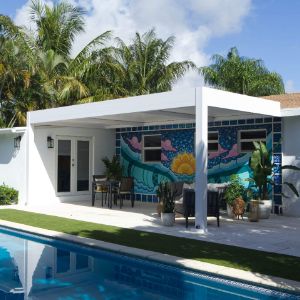
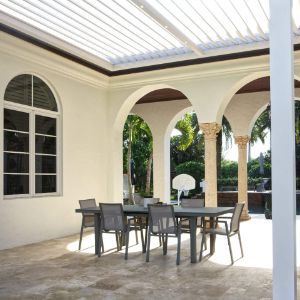

























Name
